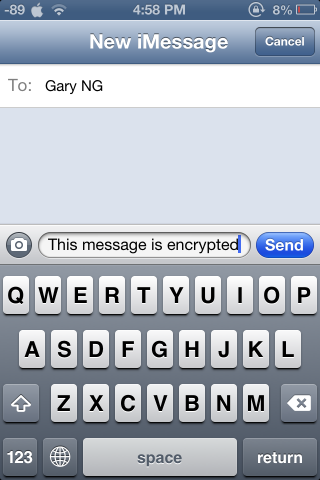
Apple’s iMessage Encryption Frustrates Drug Enforcement Administration
Officials with the DEA (Drug Enforcement Administration) reportedly complain that iMessages sent with Apple’s encrypted chat service are impossible to crack.
An internal document obtained by CNET, reads “it is impossible to intercept iMessages between two Apple devices,” even with a court warrant. The note is entitled, “Apple’s iMessages: A Challenge for DEA Intercept.”

Apple’s iMessage service came to the attention of the agency when its agents were drafting a court order to perform real-time electronic surveillance empowered by Title II of the Federal Wiretap Act, and discovered that they got incomplete records of text messages obtained from Verizon Wireless because the target of the investigation used iMessage.
Turns out text messages are impossible to intercept only when sent between two Apple devices. When the iMessage was sent to a non-Apple handset agents were sometimes able to intercept the message, “depending on where the intercept” was placed.
A year after iMessage was introduced in August last year, Mathew Green, a cryptographer, has pointed out that Apple didn’t provide information about how iMessage works.
“To me, the disconcerting thing about iMessage is how rapidly it’s gone from no deployment to securing billions of text messages for millions of users. And this despite the fact that the full protocol has never been published by Apple or (to my knowledge) vetted by security experts.”
iMessage was introduced with iOS 5, and encouraged users to avoid normal carrier SMS text messages and to route text through Apple instead. In January the company revealed how popular its messaging service had become: 2 billion iMessages sent each day from half a billion iOS devices, and Mac computers.

